Disclosure: Informational only. We are not FMCSA or USDOT. Always verify your status directly through official FMCSA systems.
Why BOC-3 Filing is Critical for FMCSA Compliance
When starting or reinstating authority as a motor carrier, freight broker, or freight forwarder, you must satisfy several regulatory requirements before you can legally begin operations. Among these, you must file the BOC-3, which is one of the most critical yet often overlooked requirements.
The Federal Motor Carrier Safety Administration (FMCSA) requires every applicant for operating authority to designate a process agent through Form BOC-3. Without this filing, your Motor Carrier (MC) Number will remain inactive, effectively preventing you from engaging in interstate commerce. The requirement is not simply bureaucratic; it establishes a legal framework that ensures carriers and brokers can be held accountable in every state in which they operate.
Courts, regulators, and other entities must have a reliable channel to deliver service of process and legal documents. For transportation companies, this is the legal foundation that enables compliance, protects public interest, and safeguards the company itself against noncompliance penalties.
What is a BOC-3 Filing?
Form BOC-3, officially known as the Designation of Agents for Service of Process, is a mandatory FMCSA filing that assigns process agents in every state where a transportation entity conducts business.
The form provides a record of individuals or companies who are legally authorized to receive service of process on behalf of a carrier, broker, or freight forwarder. In practice, this means that if your company is sued or becomes subject to regulatory proceedings in any state, the designated agent can legally accept documents on your behalf.
The BOC-3 establishes a nationwide mechanism for legal accountability, regardless of the state in which your company is physically located. Without this filing, your operating authority cannot be granted, reinstated, or maintained. It is also important to note that the BOC-3 form is not optional or advisory; it is a federal requirement rooted in ensuring due process within the transportation industry.
Who Needs to File a BOC-3?
The BOC-3 requirement applies broadly across several categories of federally regulated transportation entities. For-hire motor carriers transporting regulated commodities or passengers across state lines must file the form before receiving operating authority.
Freight brokers, who arrange for the transportation of goods but do not operate vehicles themselves, are also obligated to maintain a BOC-3 filing. Likewise, freight forwarders, who assume responsibility for shipments and may engage in consolidating and deconsolidating freight, must file.
Intrastate carriers, meaning those who operate exclusively within a single state and do not require FMCSA authority, are generally exempt. The requirement is tied directly to federal authority under the FMCSA rather than state-level regulation. Any entity seeking to conduct interstate commerce under FMCSA oversight will not be able to secure active operating authority without this filing.
Thus, the BOC-3 represents a foundational compliance step for companies intending to participate in the interstate trucking or freight brokerage marketplace.
Why BOC-3 Filing Matters for Your Operating Authority
The significance of the BOC-3 filing extends beyond simple paperwork. It is the legal mechanism through which FMCSA ensures that transportation companies remain accessible for service of process in all states where they may be subject to litigation or regulatory oversight.
Without a valid BOC-3, a carrier or broker’s operating authority cannot be activated, which means that any operations conducted would be unlawful and subject to penalties. Furthermore, having designated process agents in place provides legal protection for the company. It ensures that important legal notices, complaints, or regulatory documents are reliably delivered, reducing the risk of default judgments or compliance failures.
During FMCSA audits, inspectors often verify the presence of a valid BOC-3 as part of authority verification. From a broader perspective, filing the BOC-3 creates legal certainty for both regulators and the marketplace, signaling that your company is compliant, accessible, and properly structured to operate in interstate commerce.
Who Can File a BOC-3 Form?
Unlike certain other compliance documents, the BOC-3 cannot be filed directly by the carrier or broker, except in very limited circumstances for brokers without vehicles. In nearly all cases, only an FMCSA-approved blanket process agent is authorized to submit the form electronically.
A blanket process agent is a company or association that maintains representation in all 50 states and the District of Columbia. This ensures that no matter where a legal proceeding arises, the company has a valid representative to receive service of process. Attempting to self-file or using an unapproved provider can result in immediate rejection or delays in authority activation.
It is therefore critical to verify that the process agent you select appears on the FMCSA’s official list of approved blanket process service companies. Once filed, the BOC-3 remains valid indefinitely, unless a company changes its designated agent, in which case a new filing must be submitted promptly.
How to File a BOC-3 with the FMCSA (Step-by-Step)
The process of filing a BOC-3 begins with the selection of an approved blanket process agent. Carriers and brokers must first engage such a provider to act on their behalf in all jurisdictions. Once engaged, the process agent submits the filing electronically through the FMCSA’s official online portal.
The carrier or broker cannot complete this filing independently. After submission, the BOC-3 becomes a matter of record, and the FMCSA will use it to activate operating authority if all other requirements are satisfied. Companies should retain a copy of the filed document as part of their compliance files, since it may be requested during audits or compliance reviews.
Typically, authority is granted within three to five business days after the BOC-3 has been filed and processed. Failing to complete this step in a timely manner can result in dismissal of your operating authority application, forfeiture of application fees, and disruption to business plans.
BOC-3 Filing Cost: What to Expect
The cost of BOC-3 filing depends on the provider and the structure of the services offered. Most process agents charge a one-time filing fee, which can range from $20 to $50. However, many service providers also offer ongoing compliance packages, which may involve annual fees and additional services such as address change filings, expedited submissions, and compliance monitoring.
Costs can therefore vary significantly depending on whether you choose a basic filing service or a full compliance partner. It is critical to evaluate whether the provider is FMCSA-approved, as filings submitted by unrecognized entities will not be accepted and can delay authority activation.
Companies should be wary of unusually low-cost offers, as they may not include essential compliance safeguards. The cost of selecting a reputable and reliable process agent should be considered an investment in operational security, ensuring that your authority is activated efficiently and maintained without regulatory disruption.
Common Mistakes with BOC-3 Filing (and How to Avoid Them)
Despite its importance, many transportation companies make avoidable errors during the BOC-3 filing process. One common mistake is attempting to self-file without recognizing that only FMCSA-approved process agents may submit the form electronically.
Another is engaging with a provider that is not officially recognized, which results in delays and often necessitates re-filing. Companies also frequently fail to update their filing when making significant changes, such as relocating the principal place of business or changing process agents. This oversight can cause filings to become outdated, exposing the company to compliance risks during audits or legal proceedings.
Additionally, neglecting to keep a copy of the BOC-3 in DOT compliance records can lead to deficiencies noted during safety audits. Avoiding these mistakes requires diligence in selecting a qualified provider, maintaining current records, and regularly reviewing compliance obligations to ensure filings remain accurate and enforceable.
BOC-3 Filing and DOT Audits: What Inspectors Look For
During DOT and FMCSA audits, compliance officers routinely verify that a valid BOC-3 is on file and properly maintained. The presence of an active BOC-3 demonstrates that the company has satisfied one of the fundamental requirements for operating authority.
If the filing is missing, outdated, or filed through an unapproved agent, auditors may recommend enforcement actions, which can include revocation of authority, monetary fines, or suspension of operations. In the case of new entrants, the BOC-3 is a required element of the New Entrant Safety Audit, meaning that failure to comply can prevent the company from progressing beyond probationary status.
Also, inspectors may review whether the company maintains a copy of the BOC-3 in its records and whether the designated process agent is responsive to service of process. Ensuring compliance in this area not only satisfies regulatory requirements but also protects the company from unnecessary legal and financial exposure.
Final Thoughts: Don’t Overlook Your BOC-3 Filing
The BOC-3 filing represents a cornerstone of FMCSA compliance, linking your company to the legal and regulatory framework that governs interstate transportation. While the form itself is relatively straightforward, its implications are significant.
Without it, operating authority cannot be activated, and attempts to operate without compliance expose companies to serious penalties. By engaging an FMCSA-approved blanket process agent, transportation entities can ensure that they remain legally accessible, compliant with federal mandates, and properly positioned to withstand audits or litigation.
Companies that approach the BOC-3 filing as a technical necessity rather than an administrative formality are better equipped to secure their operating authority and sustain long-term operations in a regulated industry. It is a one-time requirement that carries lasting consequences for the legitimacy and resilience of your transportation business.
FAQs About BOC-3 Filing
All for-hire motor carriers, freight brokers, and freight forwarders operating under FMCSA authority must file Form BOC-3.
In most cases, no. Only FMCSA-approved blanket process agents may file electronically, except in limited situations for brokers without vehicles.
No, a BOC-3 filing is generally valid indefinitely, but it must be updated if you change process agents or business information.
Costs typically range from $20 to $50, but some providers charge annual fees or offer broader compliance packages.
Most filings are processed within three to five business days by the FMCSA.
Do intrastate carriers need to file? No, BOC-3 is only required for entities operating under federal FMCSA authority.
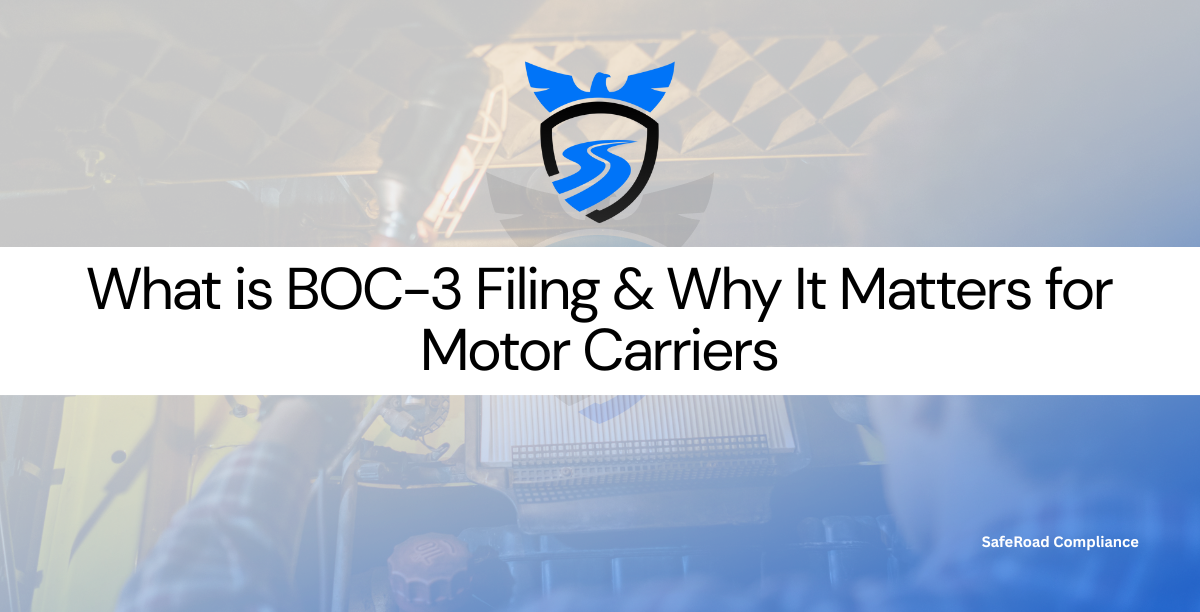
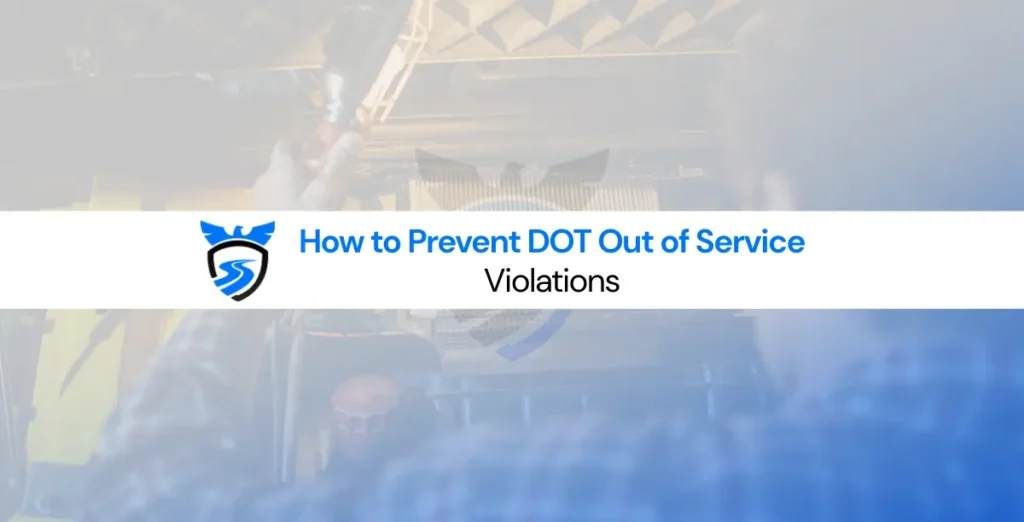
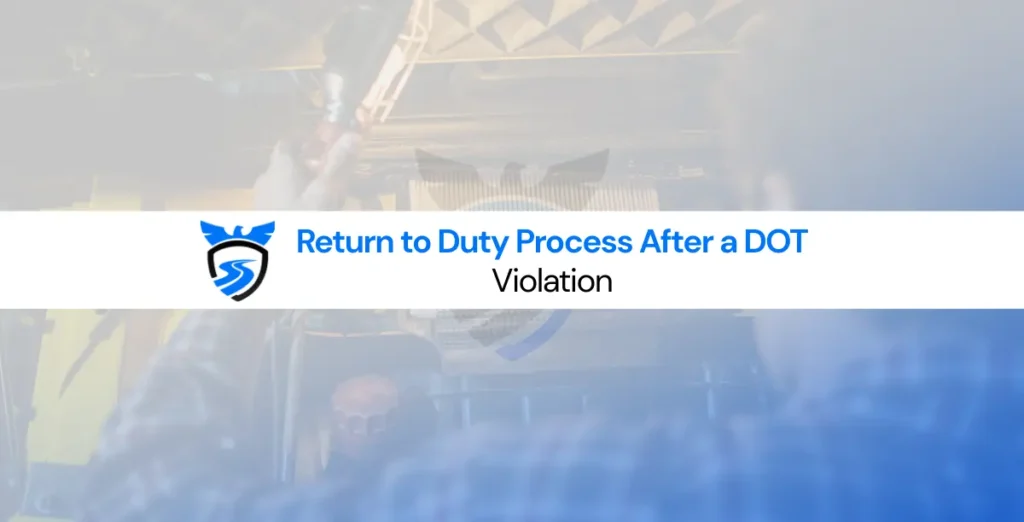
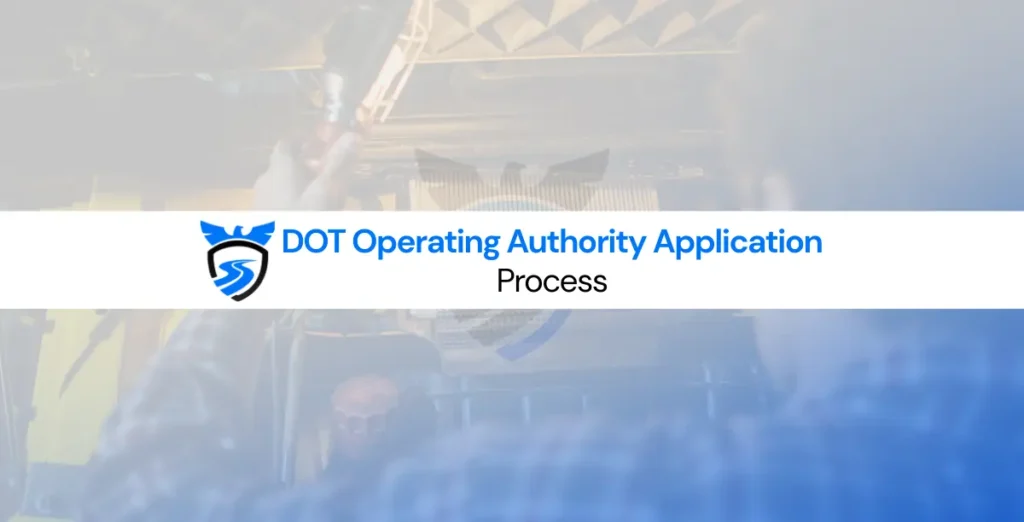
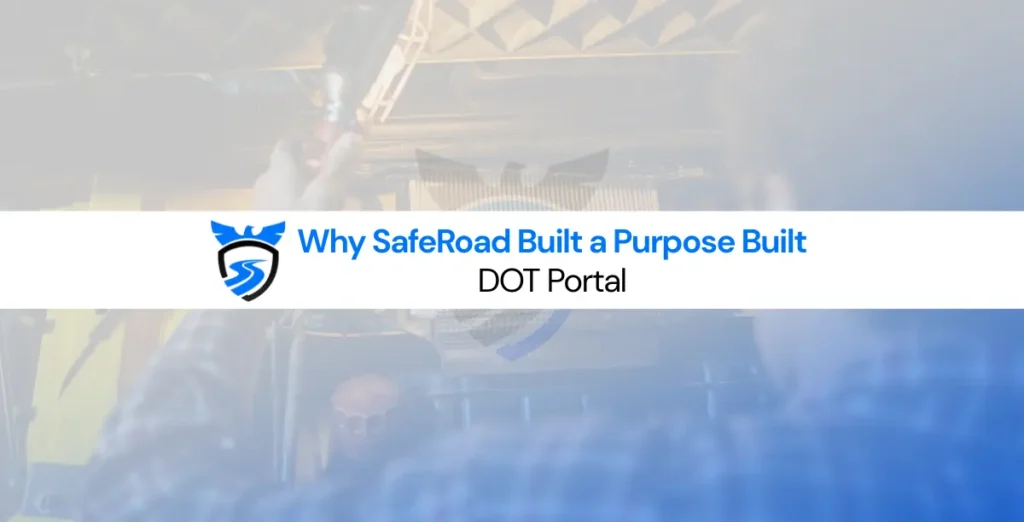
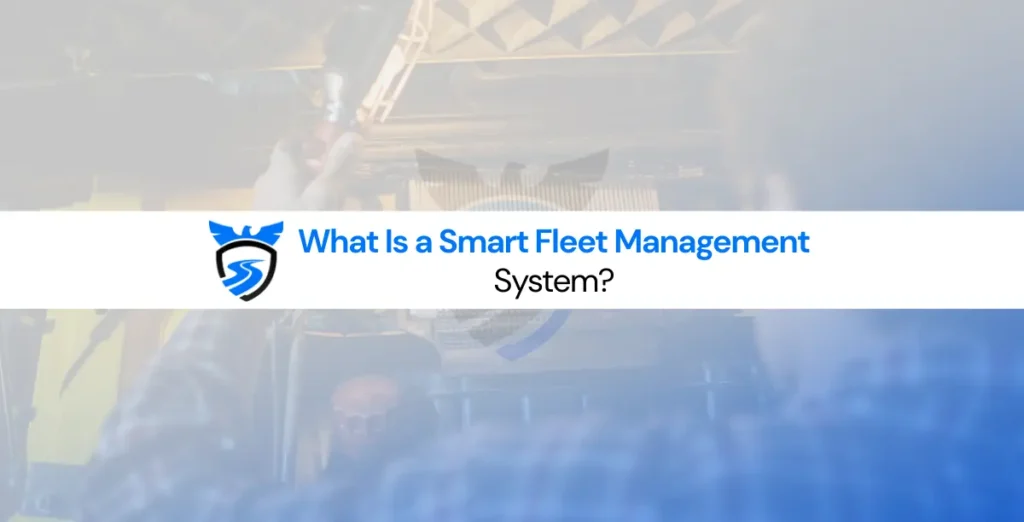
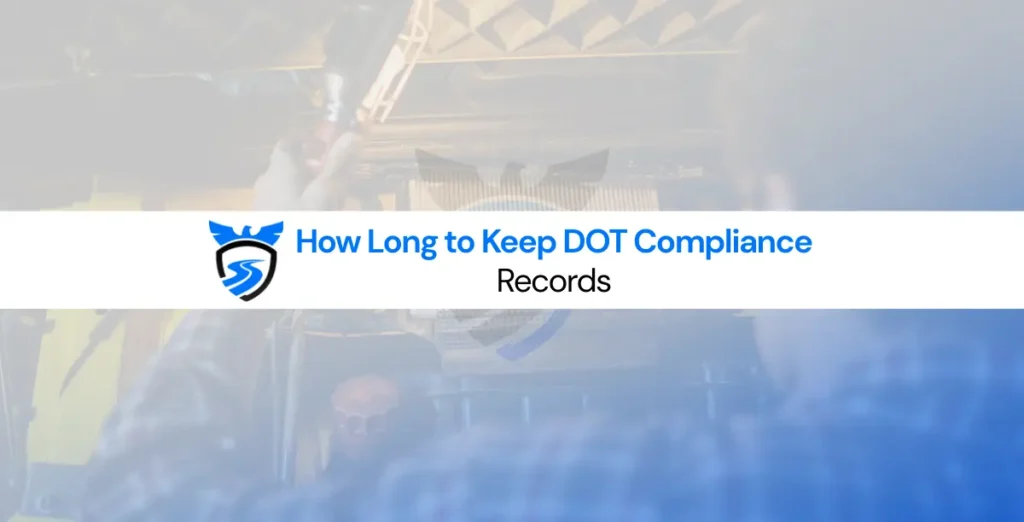
One Response